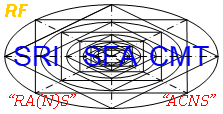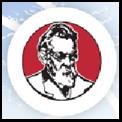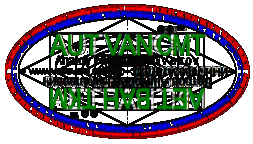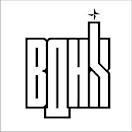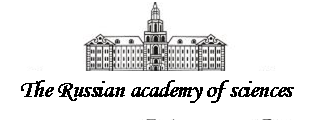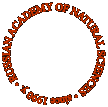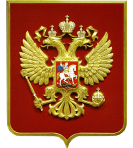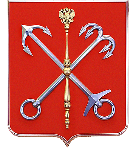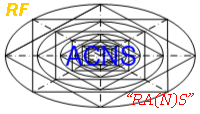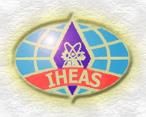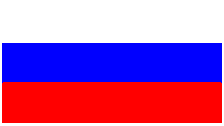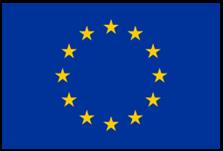“RAS” (page 1 from 2 pages)
Dear citizens of The Russian Federation and the foreign countries!
We invite You to take part in “The international action
of the author of the unique cognitive modeling technology
and the scientific direction "Cognitive informatics (computer science),
the cognitive modeling technology
for the system and financial analysis" ("AUT CMT SFA"),
academician of (natural) sciences ("(SIO) "ACNS"") Vetrov A.N.,
"The international Higher education academy of sciences" ("IHEAS"),
"The Russian academy of (natural) sciences" ("RA(N)S"),
"(SIO) "Academy of cognitive natural sciences"" ("(SIO) "ACNS""),
"The Administration of Saint-Petersburg city" and "The Government of RF"
at support of "The President of RF" due to means of the budget of RF –
the procedure of the performance with the scientific reports,
the presentation of diplomas to the experts, candidates, doctors and academicians of sciences in "RA(N)S",
the demonstration of achievements in the area of science, technology and education
in "The All-Russian exhibition centre" ("AREC")
at "The exhibition-fair of achievements of the national economy" ("EANE")
with accommodation in "The hotel "Cosmos"" ("The group of hotels "Intourist"")”.
The plan of measures in “RAS”
I. The actions in “The Russian academy of natural sciences” (go to)
II. The actions in “The Russian academy of sciences”
Members of “The Presidium of "RAS"”
Are invited from RF and the foreign countries by “RAS”
under the control of “The Government of RF”
2.1. The plenary session of “The Presidium of “The Russian academy of sciences””
The place of carrying out, room, date and interval of time will be informed in addition
During development
The salutatory word
of “The Presidium of "RAS"” (day time session)
The place of carrying out, room, date and interval of time will be informed in addition
During development
The salutatory word
of the invited to “The Presidium of "RAS"” (day time session)
The place of carrying out, room, date and interval of time will be informed in addition
During development
Break
The physical-mathematical sciences
The salutatory word
on physical-mathematical sciences of “RAS” (day time session)
The place of carrying out, room, date and interval of time will be informed in addition
During development
The salutatory word of the invited
on physical-mathematical sciences of “RAS” (day time session)
The place of carrying out, room, date and interval of time will be informed in addition
During development
The technical sciences
The salutatory word
on technical sciences of “RAS” (day time session)
The place of carrying out, room, date and interval of time will be informed in addition
During development
The salutatory word of the invited
on technical sciences of “RAS” (day time session)
The place of carrying out, room, date and interval of time will be informed in addition
During development
The economic sciences
The salutatory word
on economic sciences of “RAS” (day time session)
The place of carrying out, room, date and interval of time will be informed in addition
During development
The salutatory word of the invited
on economic sciences of “RAS” (day time session)
The place of carrying out, room, date and interval of time will be informed in addition
During development
The social, political and jurisprudence sciences
The salutatory word
on social, political and jurisprudence sciences of “RAS” (day time session)
The place of carrying out, room, date and interval of time will be informed in addition
During development
The salutatory word of the invited
on social, political and jurisprudence sciences of “RAS” (day time session)
The place of carrying out, room, date and interval of time will be informed in addition
During development
The chemical and applied (industrial and agricultural) sciences
The salutatory word
on chemical and applied (industrial and agricultural) sciences of “RAS” (day time session)
The place of carrying out, room, date and interval of time will be informed in addition
During development
The salutatory word of the invited
on chemical and applied (industrial and agricultural) sciences of “RAS” (day time session)
The place of carrying out, room, date and interval of time will be informed in addition
During development
The ecological, biological and medical sciences
The salutatory word
on ecological, biological and medical sciences of “RAS” (day time session)
The place of carrying out, room, date and interval of time will be informed in addition
During development
The salutatory word of the invited
on ecological, biological and medical sciences of “RAS” (day time session)
The place of carrying out, room, date and interval of time will be informed in addition
During development
The humanitarian sciences
The salutatory word
on humanitarian sciences of “RAS” (day time session)
The place of carrying out, room, date and interval of time will be informed in addition
During development
The salutatory word of the invited
on humanitarian sciences of “RAS” (day time session)
The place of carrying out, room, date and interval of time will be informed in addition
During development
The sports sciences
The salutatory word
on sports sciences of “RAS” (day time session)
The place of carrying out, room, date and interval of time will be informed in addition
During development
The salutatory word of the invited
on sports sciences of “RAS” (day time session)
The place of carrying out, room, date and interval of time will be informed in addition
During development
The military sciences
The salutatory word
on military sciences of “RAS” (day time session)
The place of carrying out, room, date and interval of time will be informed in addition
During development
The salutatory word of the invited
on military sciences of “RAS” (day time session)
The place of carrying out, room, date and interval of time will be informed in addition
During development
2.2. The procedure of the performance with scientific reports,
the presentation of diplomas to the experts, candidates, doctors and academicians of sciences in “RAS”
The place of carrying out, room, date and interval of time will be informed in addition
During development
The salutatory word
of the representatives of “The President of RF”, “The Government of RF”,
The President of “RAS” and members of “The Presidium of "RAS"” (day time session)
The place of carrying out, room, date and interval of time will be informed in addition
During development
The salutatory word
of the invited to “The Presidium of "RAS"” (day time session)
The place of carrying out, room, date and interval of time will be informed in addition
During development
Break
[The physical-mathematical sciences], technical sciences, economic sciences
The salutatory word of the supervisors of studies
on physical-mathematical sciences, technical sciences, economic sciences
of “RAS” (day time session)
The salutatory word of the opponents
on physical-mathematical sciences, technical sciences, economic sciences
of “RAS” (day time session)
The salutatory word of the opposing organization (“The Government of RF” and “RAS”)
on physical-mathematical sciences, technical sciences, economic sciences
of “RAS” (day time session)
The salutatory word of the invited (residents and non-residents)
on physical-mathematical sciences, technical sciences, economic sciences
of “RAS” (day time session)
The place of carrying out, room, date and interval of time will be informed in addition
During development
The performance with the scientific report “The cognitive modeling technology
for the system and financial analysis
of the information-educational environments and (credit) organizations
based on the cognitive models”
in spec. (01.02.01), 05.13.01, 05.13.10, 19.00.02 (19.00.03), 08.00.10
of the author of unique cognitive modeling technology and the scientific direction
“Cognitive informatics (computer science), the cognitive modeling technology
for the system and financial analysis”,
academician of (natural) sciences (“(SIO) "ACNS"”) Vetrov A.N. –
the system analysis of the information-educational environments (40 posters),
and the financial analysis of the (credit) organizations (20 posters)
[the complex analysis of the objects of theoretical mechanics (20 posters)]
The performance with the scientific reports of the pupils and followers
of the author of unique cognitive modeling technology and the scientific direction
“Cognitive informatics (computer science), the cognitive modeling technology
for the system and financial analysis”,
academician of (natural) sciences (“(SIO) "ACNS"”) Vetrov A.N.
The place of carrying out, room, date and interval of time will be informed in addition
During development
The performance with the scientific reports of the invited (residents and non-residents) in support
of the author of unique cognitive modeling technology and the scientific direction
“Cognitive informatics (computer science), the cognitive modeling technology
for the system and financial analysis”,
academician of (natural) sciences (“(SIO) "ACNS"”) Vetrov A.N.,
and also his pupils and followers
The place of carrying out, room, date and interval of time will be informed in addition
During development
The procedure of the presentation of diplomas
to the experts, candidates, doctors and academicians of sciences in “RAS”
2.3. The sessions of “The Russian academy of sciences” on the branches and sections
The fundamental scientific researches branch 1.
“Cognitive modeling in the mathematical sciences” (“OMN”)
The salutatory word
on the branch “The mathematical sciences branch” (“OMN”)
of “RAS” (day time session)
The place of carrying out, room, date and interval of time will be informed in addition
During development
The salutatory word of the invited
on the branch “The mathematical sciences branch” (“OMN”)
of “RAS” (day time session)
The place of carrying out, room, date and interval of time will be informed in addition
During development
The reports and performances on sections of "RAS" (residents and non-residents)
2.1.1. The fundamental scientific researches section
“Theory of mathematics and the complex system analysis
based on the cognitive modeling technology” (“SM”) (*)
Þ Theoretical mathematics (*) –
the general questions of theoretical mathematics,
theory of mathematical logics, theoretical bases of mathematics,
theory of numbers, theory of algebra, theory of topology, theory of geometry, theory of the mathematical analysis,
theory of the functions of valid variables, theory of the functions of complex variables,
theory of the ordinary differential equations,
theory of the differential equations with private derivatives, theory of the integrated equations,
theoretical mathematical models of the objects, processes and phenomena of the natural sciences and technical sciences,
theory of the equations of mathematical physics, theory of variational calculus,
mathematical theory of optimal control,
theory of the functional analysis, theory of calculation mathematics,
theory of probability, theory of mathematical statistics,
theory of the combinatory analysis, theory of graphs, theoretical mathematical cybernetics,
theory of the ways of representation of the structure of cognitive models, theory of the parametrical cognitive models block,
theory of the cognitive modeling technology in the theoretical mathematics;
Þ The theoretical complex system analysis (*) –
the general questions of the theoretical complex system analysis,
theory of the tendencies, dependences and laws of the complex system analysis of the objects, processes and the phenomena,
theory of the cognitive modeling technology with dynamic cloning, verification and subverification,
theory of the iterative cycle of the cognitive modeling technology,
theory of the technique of use of cognitive modeling technoilogy
for the complex system analysis of the difficult objects, processes and phenomena,
theory of the parametrical cognitive models block for the complex system analysis
and the increasing in the efficiency of functioning of the difficult objects, processes and phenomena,
theory of the structure of the cognitive models of the 0th, 1st, 2nd and 3rd generations,
theory of the ways of representation of the structure of cognitive models and problem environments:
the formal classical of the 0th generation (the logical and production models),
the nonformal classical of the 0th generation (the semantic network, the frame network and ontology),
the formal new of the 0th generation (the calculus of theory of sets and corteges on domains
and the innovative calculus of theory of sets and graphs),
the nonformal new of the 0th generation (the multilevel structural scheme
and the multilevel encapsulated pyramids combining theory of graphs and theory of sets),
the flat of the 1st generation (the cognitive circle and cognitive disc),
the volumetric of the 1st generation (the cognitive cylinder, cognitive cone and cognitive sphere),
the flat and volumetric of the 2nd generation (the one-, two-, three-, four-, five- and more cognitive circle,
cognitive disc, cognitive cylinder, cognitive cone and cognitive sphere),
the hybrid of the 3rd generation (the combinations of the existing cognitive models),
theory of the algorithms of formation of the structure of the difficult cognitive models of the 0th, 1st, 2nd and 3rd generations,
theory of the techniques of research of the parameters of the difficult cognitive models of the 0th, 1st, 2nd and 3rd generations,
theory of the algorithms of processing of a posteriori data of the complex system analysis of problem spheres,
theory of the software for the automation of the tasks of research,
theory of the statistical justification (substantiation) of the practical use of received results,
theory of the factors influencing on the efficiency of functioning of the difficult objects, processes and phenomena,
theory of the organization and plan of carrying out of the experimental research of cognitive models parameters,
theory of the preliminary processing of a posteriori results of diagnostics,
theory of the choice of the methods of the statistical analysis of generated data sets,
theory of the analysis of the dynamics of productivity of difficult object, process and phenomena of research,
theory of the dispersion, regression, discriminant and cluster analysis,
multidimensional scaling, factor analysis and bibliographic lists,
the theoretical complex system analysis of the basic rocket engine,
the first, the second, the third and the fourth rocket engine,
the theoretical complex system analysis of the multivariate code device,
the theoretical complex system analysis of the modificated model of reduced eye
for research process of acuity of vision, field of vision, color perception and other parameters and other parameters
in the Descartes space of 2 and 3 coordinates,
the theoretical complex system analysis of the modified model of reduced ear
for research of absolute sensitivity and thresholds of sensitivity
in the Descartes space of the 2 and 3 coordinates,
the theoretical complex system analysis of the chemical element with the one-, two-, three-, four-, five- and more nucleuses,
the theoretical complex system analysis of the difficult multidimensional hurricane
and other difficult objects, processes and phenomena.
The place of carrying out, room, date and interval of time will be informed in addition
During development
The reporters on the scientific researches section
“The theory of mathematics and the complex system analysis
based on the cognitive modeling technology” (“SM”) (*)
Will be informed in addition
2.1.2. The fundamental scientific researches section
“Theory of cybernetics and (cognitive) informatics” (“SPMI”) (*)
Þ Theoretical cybernetics –
the general questions of theoretical cybernetics,
theory of the automatic control systems, theory of modeling, theory of cybernetic control systems,
theory of information, theory of artificial intelligence,
theory of the discrete (final) automatic devices and formal languages,
theory of reliability, theory of the applied system analysis,
theory of the cognitive modeling technology in the theoretical cybernetics;
Þ Theoretical computer science –
the general questions of theoretical computer science,
theory of computer science, theory of the organization of information work,
theory of documentary information sources,
theory of the analytical-synthetic processing of documentary information sources,
theory of information search, theory of information service,
theory of the technical means of information processes,
theory of the cognitive modeling technology in the theoretical computer science;
Þ Theoretical cognitive informatics (computer science) (*) –
the general questions of theoretical cognitive informatics (computer science),
theory of the modified stratified(layered)-step model of perception (psychophysiology of perception),
processing (cognitive psychology) and understanding (applied linguistics) of the content of information fragments,
theoretical bases of cognitive informatics (computer science),
theory of the cognitive modeling technology in the technical, economic, physical-mathematical and other sciences,
theoretical bases of formation of the parametrical cognitive models block
for the system analysis of the information-educational environments
(the cognitive models of the subject of training and the means of training),
theoretical bases of formation of the parametrical cognitive models block
for the financial analysis of (credit) organizations
(the cognitive models for the vertical, horizontal and trend financial analysis),
theoretical bases of formation of the parametrical cognitive models block
for the complex system analysis of the objects, processes and phenomena of cognitive informatics (computer science),
theory of the ways of representation of the structure of cognitive models and problem environments
(the formal and nonformal classical and new of the 0th generation,
the flat and volumetric of the 1st generation and 2nd generation and the hybrid of the 3rd generation),
theory of the adaptive automation means of the information-educational environment
(the basic and applied diagnostic module, the electronic textbook,
the laboratory practical work, the electronic dean’s office, the electronic library and others),
theory of the technical means of support of the adaptive information interaction
(the adaptive representation of a sequence of information fragments processor,
the question-answers structures sequence processing processor, the linguistic processor and others),
theory of the technical means of support of the financial analysis
(the automation means of formation of the working plan of accounts
based on the normative-regulated plan of accounts of the accounting,
the automation means of formation of the accounting balance and the report about the profits and losses of organization
the automation means of the vertical, horizontal and trend financial analysis
of (credit) organization and enterprise based on diverse analytical coefficients system),
theory of the technical means of support of the complex analysis
(the automation means of formation and research based on the cognitive circle,
cognitive disc, cognitive cylinder, cognitive cone, cognitive sphere,
the one-, two-, three-, four-, five- and more cognitive sphere and others).
The place of carrying out, room, date and interval of time will be informed in addition
During development
The reporters on the scientific researches section
“The theory of cybernetics and (cognitive) informatics” (“SPMI”) (*)
Will be informed in addition
The fundamental scientific researches branch 2.
“Cognitive modeling in the physical sciences” (“OFN”)
The salutatory word
on the branch “The physical sciences branch” (“OFN”)
of “RAS” (day time session)
The place of carrying out, room, date and interval of time will be informed in addition
During development
The salutatory word of the invited
on the branch “The physical sciences branch” (“OFN”)
of “RAS” (day time session)
The place of carrying out, room, date and interval of time will be informed in addition
During development
The reports and performances on sections of "RAS" (residents and non-residents)
2.2.1. The fundamental scientific researches section
“Theory of physics, astronomy and space researches” (“SOFA”) (*)
Þ Theoretical physics (*) –
the general questions of theoretical physics,
theory of the general problems of physical experiment,
theory of the physics of elementary particles, theory of fields,
theory of high energy physics, theory of nuclear physics, theory of the physics of gases and liquids,
theory of the thermal-dynamics and static physics, theory of the physics of firm bodies,
theory of the physics of plasma, theory of the physics of atom and molecule, theory of optics, theory of laser physics,
theory of radio-physics, theory of the physical bases of electronics, theory of acoustics,
theory of the cognitive modeling technology in the theoretical physics
(the cognitive models of the interaction
between the elementary particles and firm bodies, fields, liquids and gases,
the cognitive model of the modified volumetric planetary model of atom named after Bohr N.H.D.,
the cognitive models of the temperature areas of plasma of atom and a molecule,
cognitive model of eye optical environment, the cognitive model of the distribution of waves in the environment);
Þ Theoretical astronomy (*) –
the general questions of theoretical astronomy,
theory of astronomy and heavenly mechanics,
theory of the astrometry and astro-physics of The Solar system, The Sun,
stars, fogs, interstellar environment and star systems,
theory of cosmology, theory of observatories, tools, devices and methods of astronomical supervisions,
theory of the cognitive modeling technology in the theoretical astronomy
(the cognitive models of the relative positioning of 1, 2, 3, 4, 5 and more
planets and satellites, The Earth, The Sun and others);
Þ Theoretical space researches of The Earth, The Sun and planets (*) –
the general questions of theoretical space researches of The Earth, The Sun and planets,
theory of the devices and methods of the fundamental scientific researches of space environment,
theory of the planning and realization of starts of the space vehicles and artificial heavenly bodies,
theory of the uncontrol movement of the space vehicles and artificial heavenly bodies,
theory of the control of movement of the space vehicles and artificial heavenly bodies,
theory of the space technics and technology,
theory of the safety and medical-biological problems of space flights,
theory of the use of space systems for the connection and navigation,
theory and problems of discovery of the extraterrestrial territories and the prospects of astronautics,
theory of research of astronomical objects by the space means,
theory of the geo-physical fundamental researches by the space means,
theory of the research of The Earth from the space,
theory of the cognitive modeling technology in the theoretical space researches
(the cognitive models of the gravitational and other interactions
between 1, 2, 3, 4, 5 and more artificial space objects,
satellites, planets, The Earth and The Sun,
the cognitive model of the work of the basic rocket engine,
the first, the second, the third and the fourth rocket engine and others).
The place of carrying out, room, date and interval of time will be informed in addition
During development
The reporters on the scientific researches section
“The theory of physics, astronomy and space researches” (“SOFA”) (*)
Will be informed in addition
2.2.2. The fundamental scientific researches section
“Theory of nuclear physics and physics of atomic nucleus” (“SYF”) (*)
Þ Theoretical nuclear physics (*) –
the general questions of theoretical nuclear physics,
theory of the nuclear raw materials and fuel,
theory of isotopes production, theory of the isotopes and ionization radiations,
theory of nuclear reactors, theory of thermal-nuclear reactors, theory of the action of radiations and protection against them,
theory of nuclear explosions, theory of the processing of nuclear fuel and the disposal of wastes,
theory of the cognitive modeling technology in the theoretical nuclear physics
(the cognitive model of the structure of chemical elements with 1, 2, 3, 4, 5 and more nucleuses,
the cognitive model of the modified volumetric principle named after Pauli W.E.
for the studying of electronic clouds in the limits of power levels,
the cognitive model of the modified planetary model of atom named after Bohr N.H.D. and others).
The place of carrying out, room, date and interval of time will be informed in addition
During development
The reporters on the scientific researches section
“The theory of nuclear physics and physics of atomic nucleus” (“SYF”) (*)
Will be informed in addition
The fundamental scientific researches branch 3.
“Cognitive modeling in the nano-technologies and information technologies” (“ONIT”)
The salutatory word
on the branch “The nano-technologies and information technologies branch” (“ONIT”)
of “RAS” (day time session)
The place of carrying out, room, date and interval of time will be informed in addition
During development
The salutatory word of the invited
on the branch “The nano-technologies and information technologies branch” (“ONIT”)
of “RAS” (day time session)
The place of carrying out, room, date and interval of time will be informed in addition
During development
The reports and performances on sections of "RAS" (residents and non-residents)
2.3.1. The fundamental scientific researches section
“Theory of electronics, radio-engineering and connection” (“SVLTSEB”)
Þ Theoretical electronics and radio-engineering –
the general questions of theoretical electronics and radio-engineering,
theoretical bases of electronic technics, theory of radio-engineering,
theory of the materials for the electronics and radio-engineering,
theory of the technology and equipment for the electronic and radio-engineering manufacture,
theory of the designing and constructing of electronic devices and radio-electronic equipment,
theory of the electric-vacuum and gas-discharge devices and units, theory of the accelerators of charged particles and plasma,
theory of solid-state devices, theoretical bases of quantum electronics, theory of holography,
theoretical bases of crio-electronics, theory of radio-electronic circuits,
theory of the distribution of radio-waves, theory of antennas, theory of wave-transports, theory of the elements of micro-wave technics,
theory of the radio-transmision and radio-receiving devices,
theory of the radio-engineering systems of sounding, location and navigation, theory of television (TV) technics,
theory of the record and reproduction of signals, theory of electric-acoustics, theory of the ultra-sonic and infra-sonic technics,
theory of the infra-red technics, theory of the units, details and elements of radio-electronic equipment,
theory of the devices for the radio-engineering measurements, theory of the systems and units of the display of information,
theory of the cognitive modeling technology in the theoretical electronics and radio-engineering;
Þ Theoretical connection –
the general questions of theoretical connection,
theory of connection, theory of designing and constructing connection devices,
theory of the technology and equipment for the assembly and adjustments of connection equipment,
theory of the systems of data transfer, theory of communication lines,
theory of the multi-channel connection, theory of the networks and communication centres, theory of the services and connection services,
theory of the telegraph (cable) connection and equipment, theory of the systems and equipment of data transmission,
theory of the tele-information services and equipment, theory of the tele-communication connection and equipment,
theory of the systems of transfer of the moving images and sound, theory of the facsimile connection and equipment,
theory of the radio-communication and radio-broadcasting, theory of the hyber-optic (LED) connection and equipment,
theory of television (TV), theory of the optical connection in the free space and equipment, theory of post connection,
theory of the cognitive modeling technology in the theoretical connection and terminal equipment of data transmission.
The place of carrying out, room, date and interval of time will be informed in addition
During development
The reporters on the scientific researches section
“The theory of electronics,
radio-engineering and connection” (“SVLTSEB”)
Will be informed in addition
2.3.2. The fundamental scientific researches section
“Theory of automatics, computer engineering
and the system analysis based on the cognitive modeling technology” (“SITA”) (*)
Þ Theoretical automatics and computer engineering –
the general questions of theoretical automatics and computer engineering,
theory of automatic control,
theoretical bases of programming, theoretical bases of computer engineering,
theory of the elements, units and devices of automatics and computer engineering,
theory of the devices of input-output, theory of the memory devices,
theory of the technology and equipment for the production of automatics means and computer engineering,
theory of the keyboard and calculating-tabulating machines, theory of the analog counting machines (АCM),
theory of the digital counting machines and counting complexes (DCM),
theory of the analog-digital (hybrid) counting machines and counting complexes (CCM),
theory of counting centres (CC), theory of counting networks (CN),
theory of the software of counting machines, complexes and networks,
theory of the automatic systems of mesuarement, regulation and control, theory of the tele-control and tele-measurement systems,
theory of the automated control systems of technological processes,
theory of the automated systems of organizational management, theory of design automation,
theory of the automation of scientific researches,
theory of the cognitive modeling technology in the theoretical automatics and computer engineering;
Þ The theoretical system analysis (*) –
the general questions of the theoretical system analysis,
theory of the tendencies, dependences and laws of the system analysis of the objects, processes and phenomena,
theory of the cognitive modeling technology with dynamic cloning, verification and subverification,
theory of the iterative cycle of the cognitive modeling technology,
theory of the technique of use of the cognitive modeling technology,
theory of the parametrical cognitive models block
for the system analysis of the information-educational environments
and the increasing in the efficiency of functioning
of the automated training system with the properties of adaptation based on the cognitive models
(the cognitive models of the subject of training and the means of training),
theory of the ways of representation of the structure of cognitive models and problem environments:
the formal classical of the 0th generation (the logical and production models),
the nonformal classical of the 0th generation (the semantic network, the frame network and ontology),
the formal new of the 0th generation (the calculus of theory of sets and corteges on domains
and the innovative calculus of theory of sets and graphs),
the nonformal new of the 0th generation (the multilevel structural scheme
and the multilevel encapsulated pyramids combining theory of graphs and theory of sets),
the flat of the 1st generation (the cognitive circle and cognitive disc),
the volumetric of the 1st generation (the cognitive cylinder, cognitive cone and cognitive sphere),
the flat and volumetric of the 2nd generation (the one-, two-, three-, four-, five- and more cognitive circle,
cognitive disc, cognitive cylinder, cognitive cone and cognitive sphere),
the hybrid of the 3rd generation (the combinations of the existing cognitive models),
theory of the algorithm of formation of the structure of cognitive model,
theory of the technique of the research of parameters of the cognitive models,
theory of the algorithm of the analysis of a posteriori results of research,
theory of the adaptive automation means of the information-educational environment
(the basic and applied diagnostic module, the electronic textbook,
the laboratory practical work, the electronic dean’s office, the electronic library and others),
theory of the technical means of support of the adaptive information interaction
(the adaptive representation of a sequence of information fragments processor,
the question-answers structures sequence processing processor, the linguistic processor and others),
theory of the statistical justification (substantiation) of the practical use of received results,
theory of the factors influencing on the efficiency of the formation of knowledge in the information-educational environment
and the efficiency of functioning of the difficult objects, processes and phenomena,
theory of the organization and plan of carrying out of the experimental research of cognitive models parameters,
theory of the preliminary processing of a posteriori results of diagnostics,
theory of the choice of the methods of the statistical analysis of generated data sets,
theory of the analysis of the dynamics of productivity of objects, processes and phenomena,
theory of the dispersion, regression, discriminant and cluster analysis,
multidimensional scaling, factor analysis and bibliographic lists.
The place of carrying out, room, date and interval of time will be informed in addition
During development
The reporters on the scientific researches section
“The theory of automatics, computer engineering,
system analysis based on the cognitive modeling technology” (“SITA”) (*)
Will be informed in addition
2.3.3. The fundamental scientific researches section
“The theory of the nano-technologies for the mechanical-engineering, instrument-making,
polygraphy, reprography and photo-cinema-technics,
the light and food(-processing) industry,
transport, architecture and construction” (“SNT”) (*)
Þ Theoretical nano-technologies for the mechanical-engineering –
the general questions of theoretical nano-technologies for the mechanical-engineering,
theory of the nano-technologies for the machine-science and details of machines,
for the machine-building materials, for the technologies of mechanical-engineering,
for the foundry manufacture, for the forge-stamp manufacture, for the assembly manufacture,
for the cutting materials, for the electric-physical-chemical processing,
for the thermal and strengthening powder materials, for the manufacture of nonmetallic products,
for the machine-tool-construction, for the robotics, for the tool manufacture,
for the mining mechanical-engineering, for the metallurgical mechanical-engineering,
for reactor-constraction, for the turbine-construction,
for the special power-engineering installations, for the chemical and oil mechanical-engineering,
for the locomotive-construction and carriage-building, for the engine-construction, for the motor-car-construction (industry), for the shipbuilding,
for aircraft-construction, for the space technics and rocket-production, for the hoisting-transport mechanical-engineering,
for the building and road mechanical-engineering, for the municipal mechanical-engineering,
for the tractor and agricultural mechanical-engineering, for the mechanical-engineering of light industry,
for the polygraphic mechanical-engineering, for the mechanical-engineering of food(-processing) industry,
for the mechanical-engineering of trade and public catering, for the household machines and devices,
for the manufacture of weapon, for the other branches of mechanical-engineering,
theory of the cognitive modeling technology in the theoretical nano-technologies for the mechanical-engineering;
Þ Theoretical nano-technologies for the instrument-making –
the general questions of theoretical nano-technologies for the instrument-making,
theory of the nano-technologies for the theoretical bases of instrument-making,
for the general technology of production and equipment in the instrument-making,
for the designing and constructing devices, for the measurement devices of electric and magnetic sizes (poles),
for the measurement devices of mechanical sizes, for the measurement devices of time and frequency,
for the measurement devices of structure and physical-chemical properties of substances and materials,
for the measurement devices of thermal-technical and thermal-physical parameters,
for the measurement devices of acoustic sizes and characteristics,
for the measurement devices of optical and lighting-technical sizes and characteristics,
for the measurement devices of ionization radiations, for the devices of non-destroying control of the products and materials,
for the general structural elements, units of measuring devices and systems, theory of means of office equipment,
theory of the cognitive modeling technology in the theoretical nano-technologies for the instrument-making;
Þ Theoretical nano-technologies for the polygraphy, reprography and photo-cinema-technics –
the general questions of theoretical nano-technologies for the polygraphy, reprography and photo-cinema-technics,
theory of the nano-technologies for the polygraphy, reprography and photo-cinema-technics,
theory of the cognitive modeling technology in the theoretical nano-technologies for the polygraphy, reprography and photo-cinema-technics;
Þ Theoretical nano-technologies for the light industry –
the general questions of theoretical nano-technologies for the light industry,
theory of the nano-technologies for the textile industry,
for knitted industry, for the clothing industry,
for the tanning industry, for the fur industry,
for the industry of an artificial leather and film materials, for the shoe industry,
for the leather-haberdashery industry, for the bristle-brush manufacture, for the manufacture of furniture (accessories),
theory of the cognitive modeling technology in the theoretical nano-technologies for the light industry;
Þ Theoretical nano-technologies for the food(-processing) industry –
the general questions of theoretical nano-technologies for the food(-processing) industry,
theory of the nano-technologies for the food raw materials and auxiliary materials,
for the processes and devices of food manufactures,
for the (grain-)elevator and flour(-grinding)-sereals (croup) industry, for the mixed fodder industry,
for the baking of bread and macaroni industry, for the confectionery industry, for the sugar industry,
for the starched-treacle industry, for the barmy industry, for the brewing industry,
for the spiritous industry, for the industry of high-alcohol drinks,
for the wine-making (vinous) industry, for the industry of without alcohol (soft) drinks,
for the canning, vegetable-drying and food-concentrat industry, for the food-gustatory industry,
for the tobacco industry, for the meat and bird-fancier-processing industry,
for the manufacture of eggs and egg products, for the dairy (milk) industry, for the butter-fatty (creamery) industry,
theory of the cognitive modeling technology in the theoretical nano-technologies for the food(-processing) industry;
Þ Theoretical nano-technologies for the transport –
the general questions of theoretical nano-technologies for the transport,
theory of the nano-technologies for the railway transport, for the motor-car transport,
for the sea (water) transport, for the air transport,
for the pipeline transport, for the industrial transport, for the municipal transport,
for the interaction of the different kinds of transport, for the mixed transportations, for the other types of transport,
theory of the cognitive modeling technology in the theoretical nano-technologies for the transport;
Þ Theoretical nano-technologies for the architecture and construction (*) –
the general questions of theoretical nano-technologies for architecture and construction,
theory of the engineering-theoretical bases of construction, theory of architecture,
theory of the building materials and products, theory of building constructions,
theory of the technology of building-installation works,
theory of the technology of production of the building materials and products,
theory of the machines, mechanisms, equipment and tool,
used in the construction and industry of building-materials,
theory of the engineering researches in the construction, theory of architectural-building designing,
theory of regional lay-out, theory of town-planning,
theory of the objects of construction and engineering support of the objects of construction,
theory of the tendencies, dependences and laws in architecture and construction,
theory of the cognitive modeling technology with dynamic cloning, verification and subverification,
theory of the iterative cycle of the cognitive modeling technology,
theory of the technique of use of the cognitive modeling technology,
theory of the parametrical cognitive models block for the architecture and construction
(the buildings and constructions based on the cognitive disc, cognitive circle,
cognitive cylinder, cognitive cone and cognitive sphere),
theoretical bases of formation of the parametrical cognitive models block,
theory of the ways of representation of the structure of cognitive models and problem environments
(the formal and nonformal classical and new of 0th generation,
the flat and volumetric of the 1st generation and 2nd generation and the hybrid of the 3rd generation),
theory of the algorithm of formation of the structure of cognitive model,
theory of the technique of research of parameters of cognitive model,
theory of the algorithm of the analysis of a posteriori results of research,
theory of the adaptive automation means of architecture and construction
(the automation means of formation and research based on the cognitive circle,
cognitive disc, cognitive cylinder, cognitive cone, cognitive sphere,
the one-, two-, three-, four-, five- and more cognitive sphere and others),
theory of the statistical justification (substantiation) of the practical use of received results,
theory of the factors influencing on the efficiency of the architecture and construction of buildings and constructions,
theory of the organization and plan of carrying out of the experimental research of cognitive models parameters,
theory of the preliminary processing of a posteriori results of diagnostics,
theory of the choice of the methods of the statistical analysis of generated data sets,
theory of the analysis of the dynamics of productivity of the construction,
theory of the dispersion, regression, discriminant and cluster analysis,
multidimensional scaling, factor analysis and bibliographic lists.
The place of carrying out, room, date and interval of time will be informed in addition
During development
The reporters on the scientific researches section
“The theory of the nano-technologies for the mechanical-engineering, instrument-making,
polygraphy, reprography and photo-cinema-technics, the light and food(-processing) industry,
transport, architecture and construction” (“SNT”) (*)
Will be informed in addition
The fundamental scientific researches branch 4.
“Cognitive modeling in the exact sciences” (“OEMMPU”)
The salutatory word
on the branch “The power-engineering, mechanical-engineering, mechanics
and control processes” (“OEMMPU”)
of “RAS” (day time session)
The place of carrying out, room, date and interval of time will be informed in addition
During development
The salutatory word of the invited
on the branch “The power-engineering, mechanical-engineering, mechanics
and control processes” (“OEMMPU”)
of “RAS” (day time session)
The place of carrying out, room, date and interval of time will be informed in addition
During development
The reports and performances on sections of "RAS" (residents and non-residents)
2.4.1. The fundamental scientific researches section
“Theory of (theoretical) mechanics and gyroscopes” (“SM”) (*)
Þ Theoretical mechanics (*) –
the general questions of theoretical mechanics,
theoretical bases, general tasks and methods of mechanics,
theory of general mechanics, theory of the mechanics of liquid and gas, theory of the mechanics of deformable firm body,
theory of the complex and special sections of mechanics,
theoretical bases of the cognitive modeling technology in mechanics,
theoretical bases of formation of the parametrical cognitive models block
for the complex system analysis of the objects, processes and phenomena of mechanics,
theory of the ways of representation of the structure of cognitive models and problem environments:
the formal classical of the 0th generation (the logical and production models),
the nonformal classical of the 0th generation (the semantic network, the frame network and ontology),
the formal new of the 0th generation (the calculus of theory of sets and corteges on domains
and the innovative calculus of theory of sets and g raphs),
the nonformal new of the 0th generation (the multilevel structural scheme
and the multilevel encapsulated pyramids combining theory of graphs and theory of sets),
the flat of the 1st generation (the cognitive circle and cognitive disc),
the volumetric of the 1st generation (the cognitive cylinder, cognitive cone and cognitive sphere),
the flat and volumetric of the 2nd generation (the one-, two-, three-, four-, five- and more cognitive circle,
cognitive disc, cognitive cylinder, cognitive cone and cognitive sphere),
the hybrid of the 3rd generation (the combinations of the existing cognitive models),
theory of the adaptive automation means of the objects, processes and phenomena of mechanics,
theory of the technical means of the support of research of the objects, processes and phenomena of mechanics,
theory of the technical means of support of the complex system analysis
of the difficult objects, processes and phenomena of mechanics
(the automation means of formation and research based on the cognitive circle,
cognitive disc, cognitive cylinder, cognitive cone, cognitive sphere,
the one-, two-, three-, four-, five- and more cognitive sphere and others),
theory of the statistical justification (substantiation) of the practical use of received results,
theory of the factors influencing on the efficiency of functioning of the objects, processes and phenomena of mechanics,
theory of the organization and plan of carrying out of the experimental research of cognitive models parameters,
theory of the preliminary processing of a posteriori results of diagnostics,
theory of the choice of the methods of the statistical analysis of generated data sets,
theory of the analysis of the dynamics of productivity of the objects, processes and phenomena of mechanics,
theory of the dispersion, regression, discriminant and cluster analysis,
multidimensional scaling, factor analysis and bibliographic lists;
Þ Theoretical mechatronics (theory of hyroscope-building) –
the general questions of theoretical mechatronics,
theoretical bases, general tasks and methods of mechatronics,
theory of general mechatronics, theory of mechatronics of liquids and gas, theory of the mechatronics of deformable firm body,
theory of the complex and special sections of mechatronics,
theory of the automation means and devices of mechatronics,
theory of the cognitive modeling technology in the theoretical mechatronics (theory of hyroscope-building).
The place of carrying out, room, date and interval of time will be informed in addition
During development
The reporters on the scientific researches section
“The theory of (theoretical) mechanics and gyroscopes” (“SM”) (*)
Will be informed in addition
2.4.2. The fundamental scientific researches section
“Theory of mechanical-engineering, instrument-making and metrology” (“SPMPU”)
Þ Theoretical mechanical-engineering –
the general questions of theoretical mechanical-engineering,
theory of machine-science and details of machines, theory of machine-building materials,
theory of the technology of mechanical-engineering, theory of foundry manufacture,
theory of forge-stamp manufacture, theory of assembly manufacture, theory of the cutting of materials,
theory of the electric-physical-chemical processings, theory of the thermal and strengthening processing,
theory of the furnish of surfaces and drawing of coverings, theory of the manufacture of products from the powder materials,
theory of the manufacture of nonmetallic products, theory of machine-tool-construction, theory of robotics,
theory of tool manufacture, theory of mining mechanical-engineering, theory of metallurgical mechanical-engineering,
theory of reactor-constraction, theory of turbine-construction, theory of special power-engineering installations,
theory of chemical and oil mechanical-engineering, theory of the locomotive-construction and carriage-building,
theory of engine-construction, theory of motor-car-construction (industry), theory of ship building, theory of aircraft-construction,
theory of the space technics and rocket-production, theory of hoisting-transport mechanical-engineering,
theory of the building and road mechanical-engineering, theory of municipal mechanical-engineering,
theory of the tractor and agricultural mechanical-engineering, theory of the mechanical-engineering for the light industry,
theory of polygraphic mechanical-engineering, theory of the mechanical-engineering for the food(-processing) industry,
theory of the mechanical-engineering for the trade and public catering, theory of the household machines and devices,
theory of the manufacture of weapon, theory of the other branches of mechanical-engineering,
theory of the cognitive modeling technology in the theoretical mechanical-engineering;
Þ Theoretical instrument-making –
the general questions of theoretical instrument-making,
theoretical bases of instrument-making, theory of the general technology of production and equipment in the instrument-making,
theory of the designing and constructing of devices,
theory of the devices for the measurement of electric and magnetic sizes,
theory of the devices for the measurement of mechanical sizes, theory of the devices for the measurement of time and frequency,
theory of the devices for the measurement of structure and physical-chemical properties of substances and materials,
theory of the devices for the thermal-technical and thermal-physical measurements,
theory of the devices for the measurement of acoustic sizes and characteristics,
theory of the devices for the measurement of optical and lighting-technical sizes and characteristics,
theory of the devices for the measurement of ionization radiations,
theory of the devices of non-destroying control of the products and materials,
theoretical bases of general structural elements, theory of the units of measuring devices and systems,
theory of the devices of interface and office-equipment means,
theory of the cognitive modeling technology in the theoretical instrument-making;
Þ Theoretical metrology (theory of measurement) –
the general questions of theoretical metrology,
theory of the scientific bases and technical means of metrology and metrological support,
theory of the state, national and international systems and services of metrology,
theory of the measurement of separate sizes and characteristics,
theory of standard samples of structure and properties of substances and materials,
theory of the cognitive modeling technology in the theoretical metrology (theory of measurement).
The place of carrying out, room, date and interval of time will be informed in addition
During development
The reporters on the scientific researches section
“The theory of mechanical-engineering,
instrument-making and metrology” (“SPMPU”)
Will be informed in addition
2.4.3. The fundamental scientific researches section
“Theory of power-engineering and electric-engineering” (“SE”)
Þ Theoretical power-engineering –
the general questions of theoretical power-engineering,
theory of power-resources, theory of power balance,
theory of electric-power-engineering (industry), theory of thermal-power-engineering (industry), theory of heating-engineering,
theory of atomic power-engineering, theory of hydraulic-power-engineering, theory of helium-power-engineering,
theory of wind-power-engineering, theory of the direct transformation of energy,
theory of the cognitive modeling technology in the theoretical power-engineering;
Þ Theoretical electric-engineering –
the general questions of theoretical electric-engineering,
theory of electric-engineering, theory of electric-technical materials,
theory of electric machines, theory of electric devices, theory of transformers and electric reactors,
theory of power electric condensers, theory of power converting technics, theory of electric drive,
theory of electric-thermy, theory of electric-welding equipment, theory of wire and cable, theory of electric isolators,
theory of light-engineering, theory of the electric-technical equipment of special purpose,
theory of the cognitive modeling technology in the theoretical electric-engineering.
The place of carrying out, room, date and interval of time will be informed in addition
During development
The reporters on the scientific researches section
“The theory of power-engineering and electric-engineering” (“SE”)
Will be informed in addition
Next (go to page 2)
“RAS” (page 1 from 2 pages)

